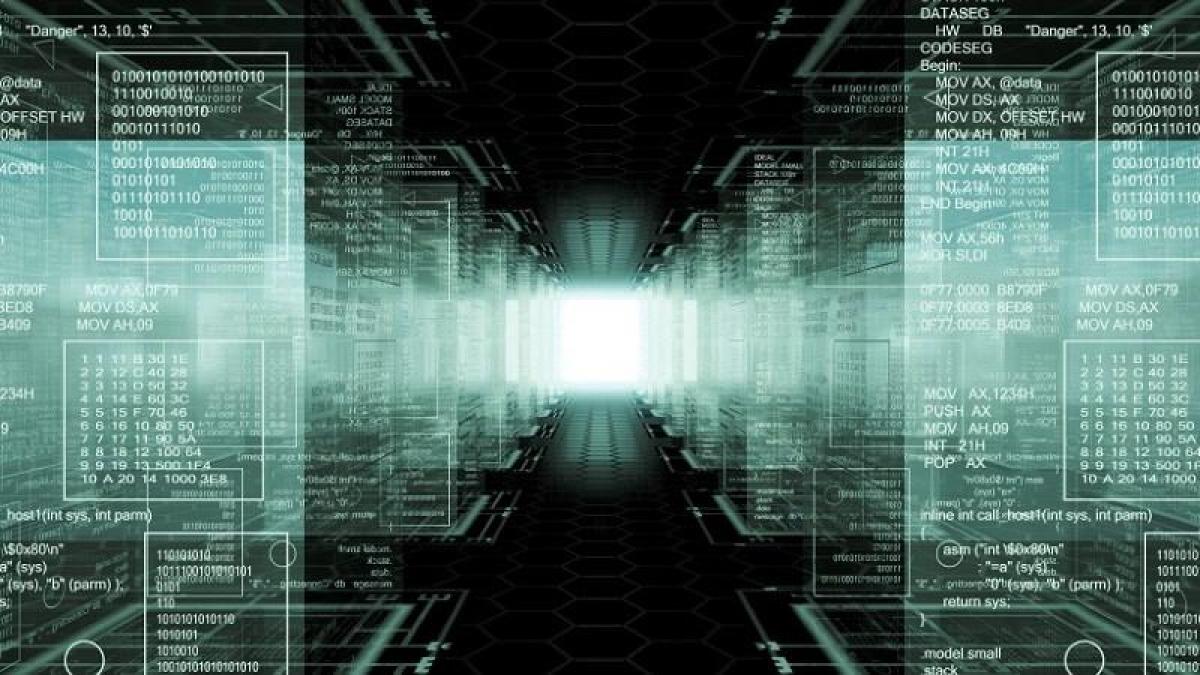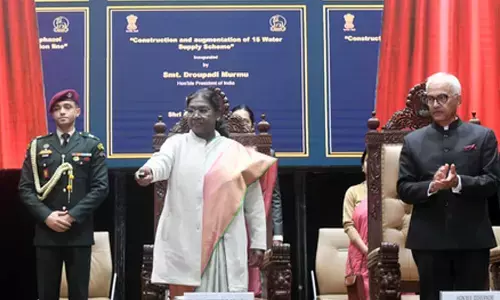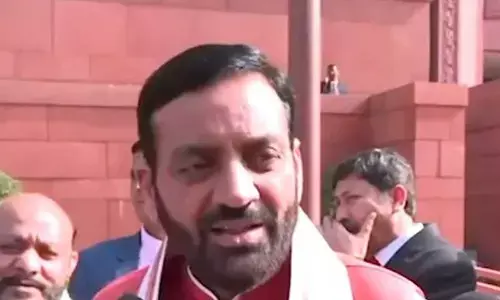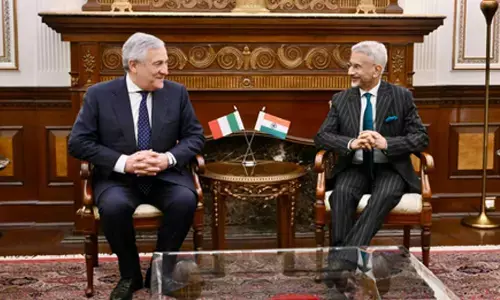The real face of the cyber world

Neighborly relations between countries used to be limited by their geographical proximity until a few decades ago. However with the incredibly rapid development of computer and communication technologies, the worldwide web has been growing massively on a global scale and has turned all the countries in the world into cyber neighbors.
Neighborly relations between countries used to be limited by their geographical proximity until a few decades ago. However with the incredibly rapid development of computer and communication technologies, the worldwide web has been growing massively on a global scale and has turned all the countries in the world into “cyber neighbors". The utilization of computers, communication and internet technologies, which are the fundamental elements of the “Information Age” that we live in, has become a necessity for the administration and international relations of the countries.
Governments have begun to extensively utilize the Internet system in order to provide more efficient qualitative services to their citizens since the beginning of the 21st century. Corporate services such as banking services can now be utilized in one’s palm of through mobile devices. However, despite its innumerable benefits, the use of internet has also caused the governments and corporate companies to become vulnerable to all kinds of cyber-attacks and information theft.
A cyber-attack could disable power systems, gas pipes, railways, dams, or elevators. Aviation systems, ground transportation systems, financial systems and many more organizations could be paralyzed by such attacks. Radar systems, missiles, and in short any and all conventional arms, are vulnerable to these attacks.
The shadow governments or the organizations that advocate radical views can cause harm to a state that they are opposed to, a hostile group or a hostile organization via the Internet; can create public opinion by using the Internet as a means of propaganda, in short they can carry out “virtual terrorist acts.”
Indeed, the damage caused by the shadow governments and the radical groups that misuse the Internet technology has now amounted to billions of dollars: The damage from cyber-attacks has cost corporations $400 billion in 2015.[i] In order to prevent such damage, the Internet security industry becomes more and more advanced every year. The total amount of money spent on cyber-safety as of 2016 is projected to be 100 billion dollars and this figure is predicted to grow to 170 billion dollars by 2020.[ii]
In short, cyber worlds host a profound lack of security and this creates a very large profitable opportunity. It appears that the money spent on cyber-attacks and the protection against such attacks in today’s world, where there are ongoing wars and conflicts with outcomes still unknown, will regrettably continue to increase. It is not hard to foresee that the extent and severity of these cyber-attacks will increase and the financial losses and damages resulting from such attacks will increase exponentially, given the speed of the advancements of this technology.
Furthermore, it is a known fact that the countries, organizations, and structures behind cyber-attacks and wars, just as in military battles, always act with certain motives and ideologies. These motives can be fueled by ideologies such as communism, fascism, capitalism, neo-Nazism or the extreme radical views in any religion that supports violence.
For instance, the members of a group behind resounding cyber-attacks identify themselves as “libertarian” and “anti-capitalist” yet despite their statements, the methods they employ and their illegal activities in the cyber world indicate that they stand up for a radical communist world view.
The actions of these cyber crooks, just like Vladimir Lenin stressed while speaking of communist guerrillas, are always of a detrimental nature:
"To murder the police, the soldiers, the governmental officials and to set the state institutions on fire… To take away Money from the treasures of the state… The revolutionary communist forces must emerge as invincible armed forces; establishing the communist dictatorship over the society by killing people, bombing them, blowing up buildings, spreading fear, is one of the most important elements for us to come to power.." (Vladimir Lenin, On Theoretical and Practical Terror, Homizuri G.P., Moscow, 2005)
Today, cyber hackers reveal the confidential information of governments and people as a means of threatening, terrorizing and damaging them, just as described by Lenin. They steal the money in the banks through cyber-attacks and attempt to inflict the greatest damage on private institutions, state organizations, corporate companies, banks and the financial centers. On the top of it, they aim to bring about a state of panic and to arouse public sentiment by displaying such actions as a show of strength and a means of challenging others through their methods. Furthermore, these cyber crooks provide various lectures on the methods of cyber-attack on the internet; they even offer training programs to the members of such cyber crooks. In short, it seems that a cyber warfare campaign has been initiated.
The solution to this ongoing problem is obvious: the way to prevent these cyber-attacks is to reveal the distorted ideologies behind such attacks and to render them inefficient, just as in physical battles. Raising awareness among people and informing them of the adverse effects of such attacks by emphasizing that they are in a blind fight might contribute to eliminating the environment of insecurity. In this way, not only resources but also technological efforts and time that are wasted for this cause could be redirected to provide a better use for benefiting and creating prosperity for people.
Given that only 10 billion dollars are sufficient to put an end to hunger on the African continent, we can clearly determine that the elimination of the adverse effects and costs of trillions of dollars of cyber-attacks is of prime importance for the prosperity of the world community.
Otherwise, the method of “war against war”, be it a cyber or a physical one, would merely lead to a mutual worsening economic situation. The result would apparently be global destruction with no winner, considering that the warring parties and blocks are almost equally capable in terms of knowledge, technology, and intelligence. It would not be wrong to predict that it will end up with a kind of technological apocalypse, without anyone benefiting from or having an edge over the other. Thus, today, those who promote and support such challenges by advocating for war, should focus on looking for reconciliation and prosperity.
by Harun Yahya
The writer has authored more than 300 books translated in 73 languages on politics, religion and science. He may be followed at @Harun_Yahya and www.harunyahya.com

















